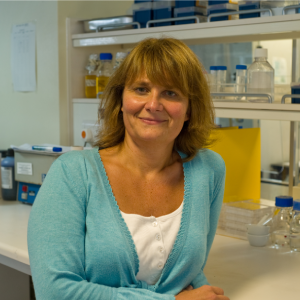Ilaria Bellantuono
 Ilaria Bellantuono is Professor of Musculoskeletal Ageing and Co-Director of the Healthy Lifespan Institute (HELSI), bringing together over 150 academics from 5 faculties to deliver new integrated interventions for the prevention of multimorbidity and frailty across the lifecourse. She is medically qualified but not clinically active and her research interests are in the development and translation of geroprotectors to prevent multimorbidity and boosts resilience in frail older people. She led the Horizon 2020 funded programme MouseAGE, including over 200 scientists from 25 European countries, both from academia and industry providing a European consensus on the way forward for preclinical testing of geroprotectors in mouse models of ageing and age-related diseases and their speedy translation to the clinic (Bellantuono, Nature 2018). This has informed the scientific strategy of HELSI opened in 2019. In recent years, she has focused on developing a framework for establishing clinical trials with geroprotectors in UK for multimorbidity and frailty and on facilitating the establishment of a clear route to market.
Ilaria Bellantuono is Professor of Musculoskeletal Ageing and Co-Director of the Healthy Lifespan Institute (HELSI), bringing together over 150 academics from 5 faculties to deliver new integrated interventions for the prevention of multimorbidity and frailty across the lifecourse. She is medically qualified but not clinically active and her research interests are in the development and translation of geroprotectors to prevent multimorbidity and boosts resilience in frail older people. She led the Horizon 2020 funded programme MouseAGE, including over 200 scientists from 25 European countries, both from academia and industry providing a European consensus on the way forward for preclinical testing of geroprotectors in mouse models of ageing and age-related diseases and their speedy translation to the clinic (Bellantuono, Nature 2018). This has informed the scientific strategy of HELSI opened in 2019. In recent years, she has focused on developing a framework for establishing clinical trials with geroprotectors in UK for multimorbidity and frailty and on facilitating the establishment of a clear route to market.
Geroprotectors for the prevention of frailty and multimorbidity: challenges for clinical translation and potential solutions
Multimorbidity and frailty are common problems in older age. These patients have complex medical needs, which are strongly associated with disability and hospitalization. Currently, the single disease approach to medicine does not address these problems very well. Geroprotectors target fundamental mechanisms of ageing common to multiple age-related diseases and shows promise in delaying the onset of multiple long-term chronic conditions and frailty in animal models. However, there are many barriers to their clinical translation ranging from clinical trial design and length of duration of the trial, to the need to include patients, which are often excluded from clinical trials and are highly heterogeneous, to the lack of well-characterised measures of outcomes and of a clear path to market. In this presentation, I will give examples of our current thinking of the ways in which we hope to overcome some of these challenges.


